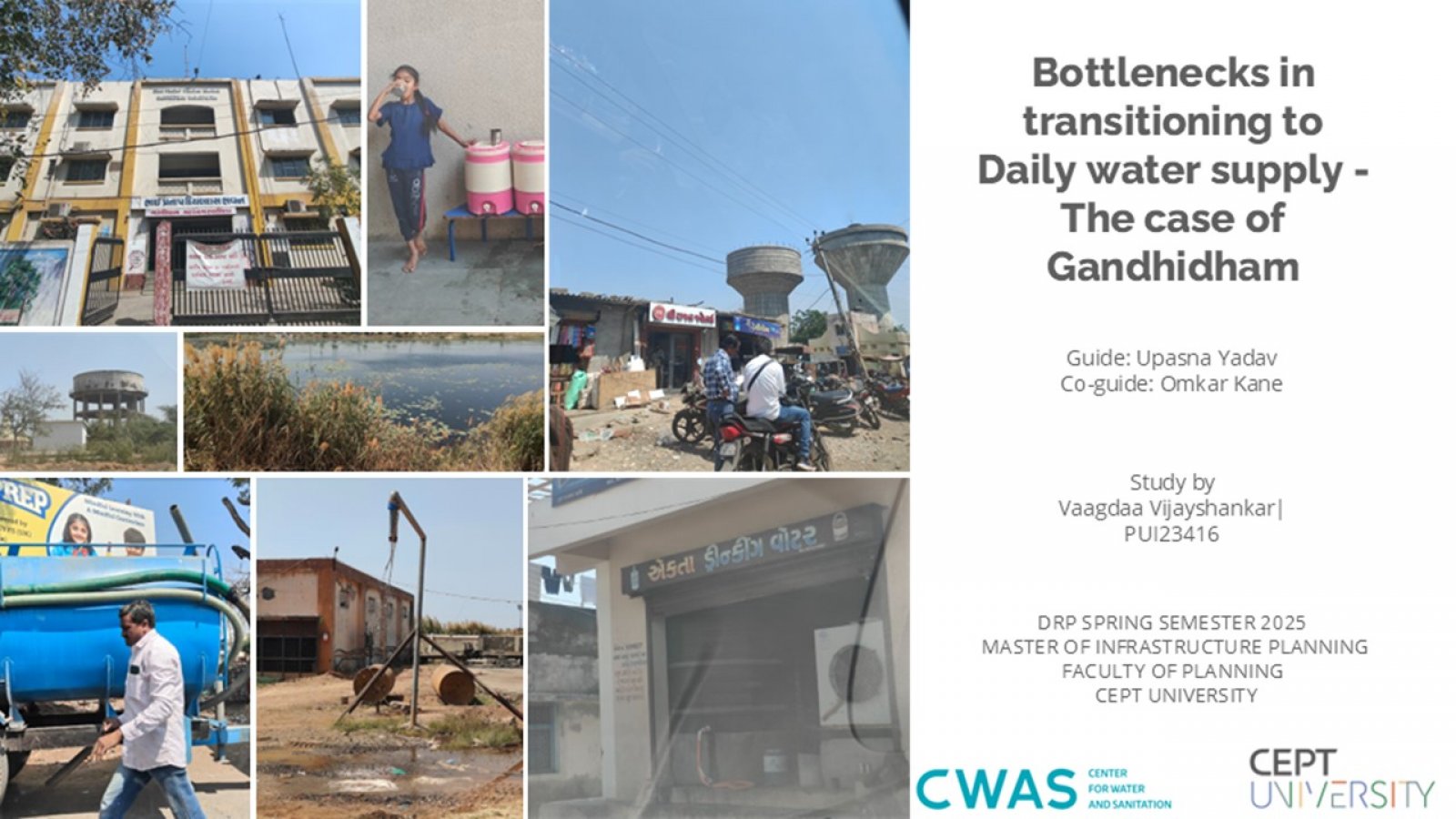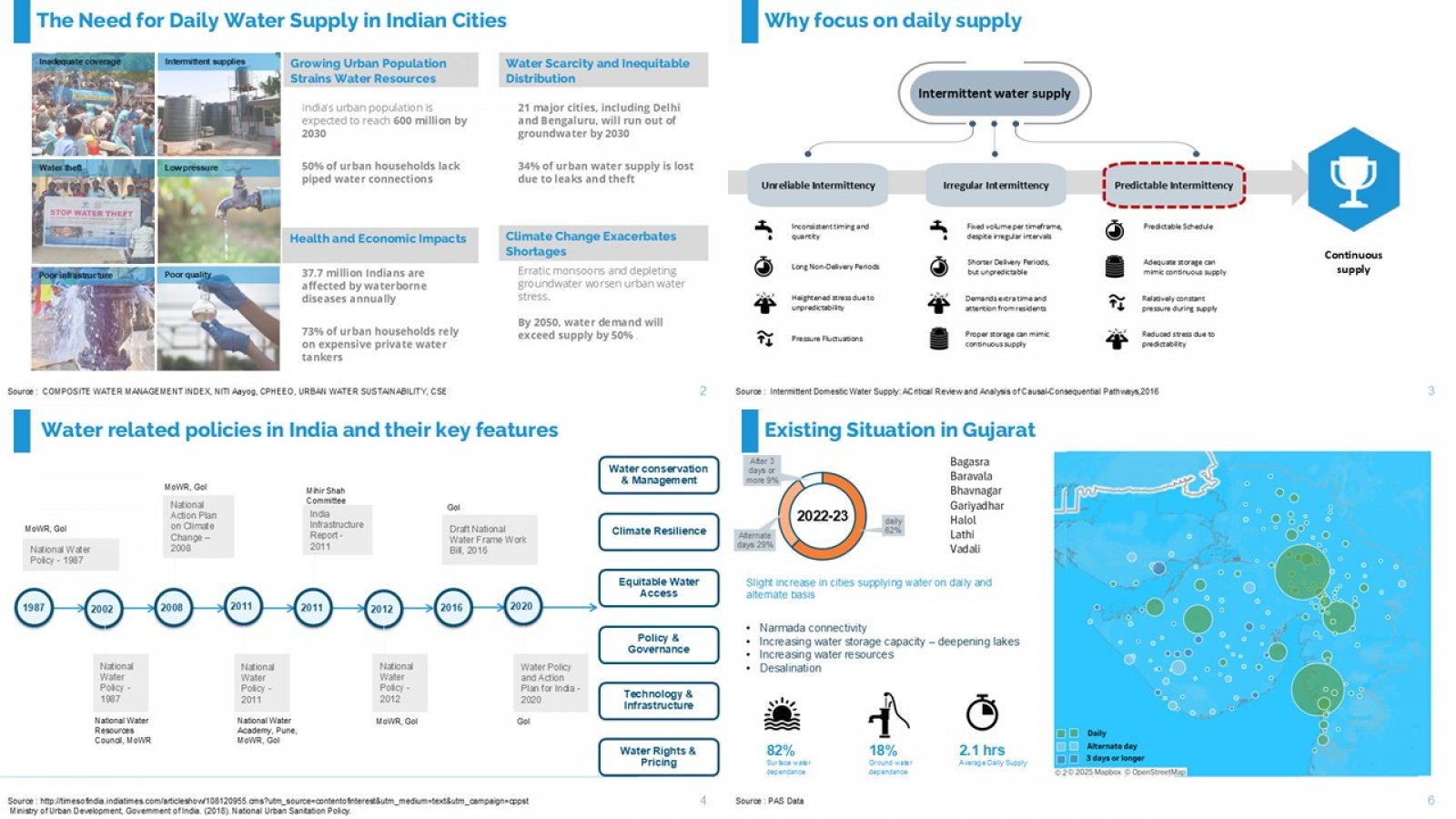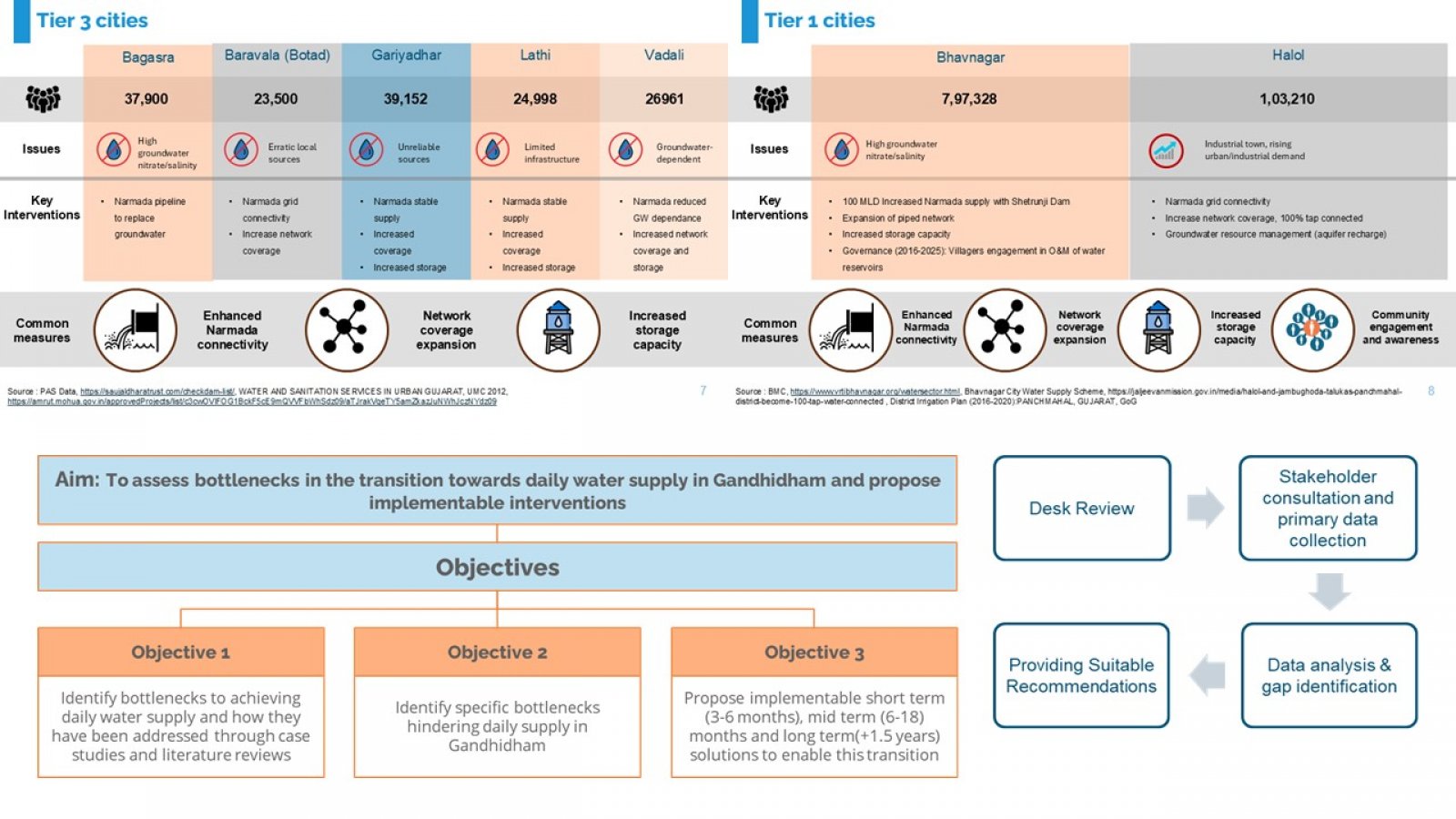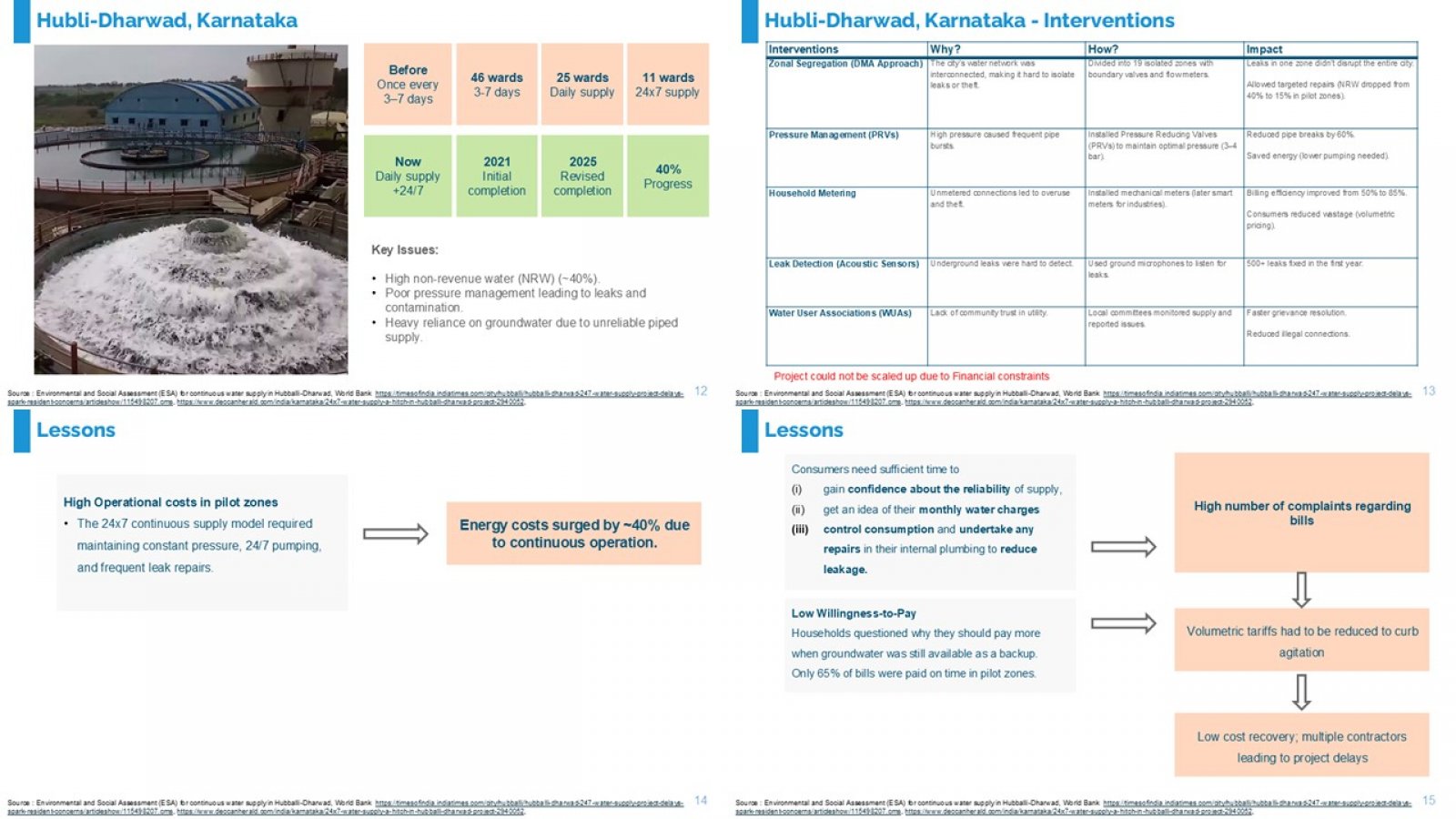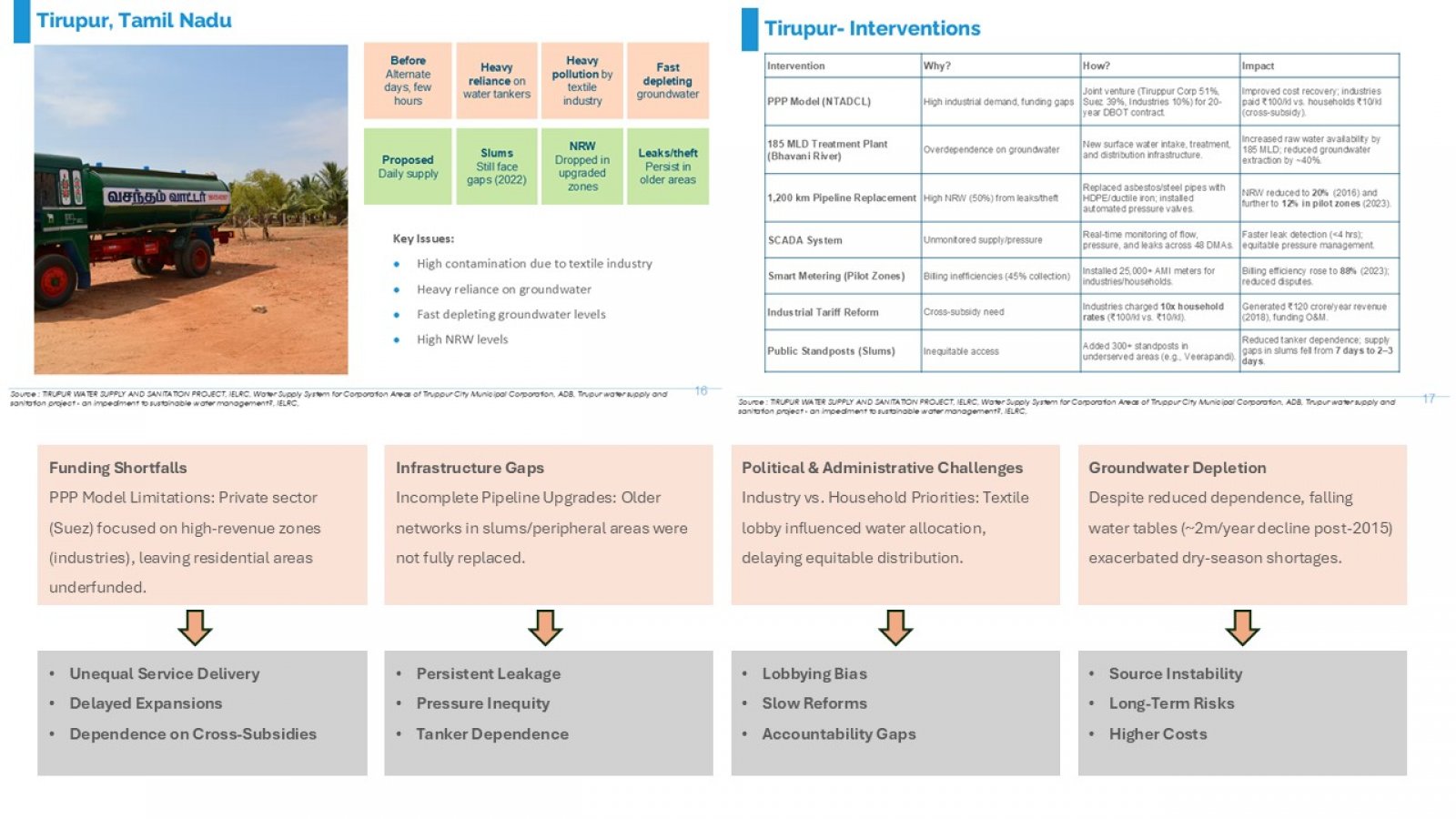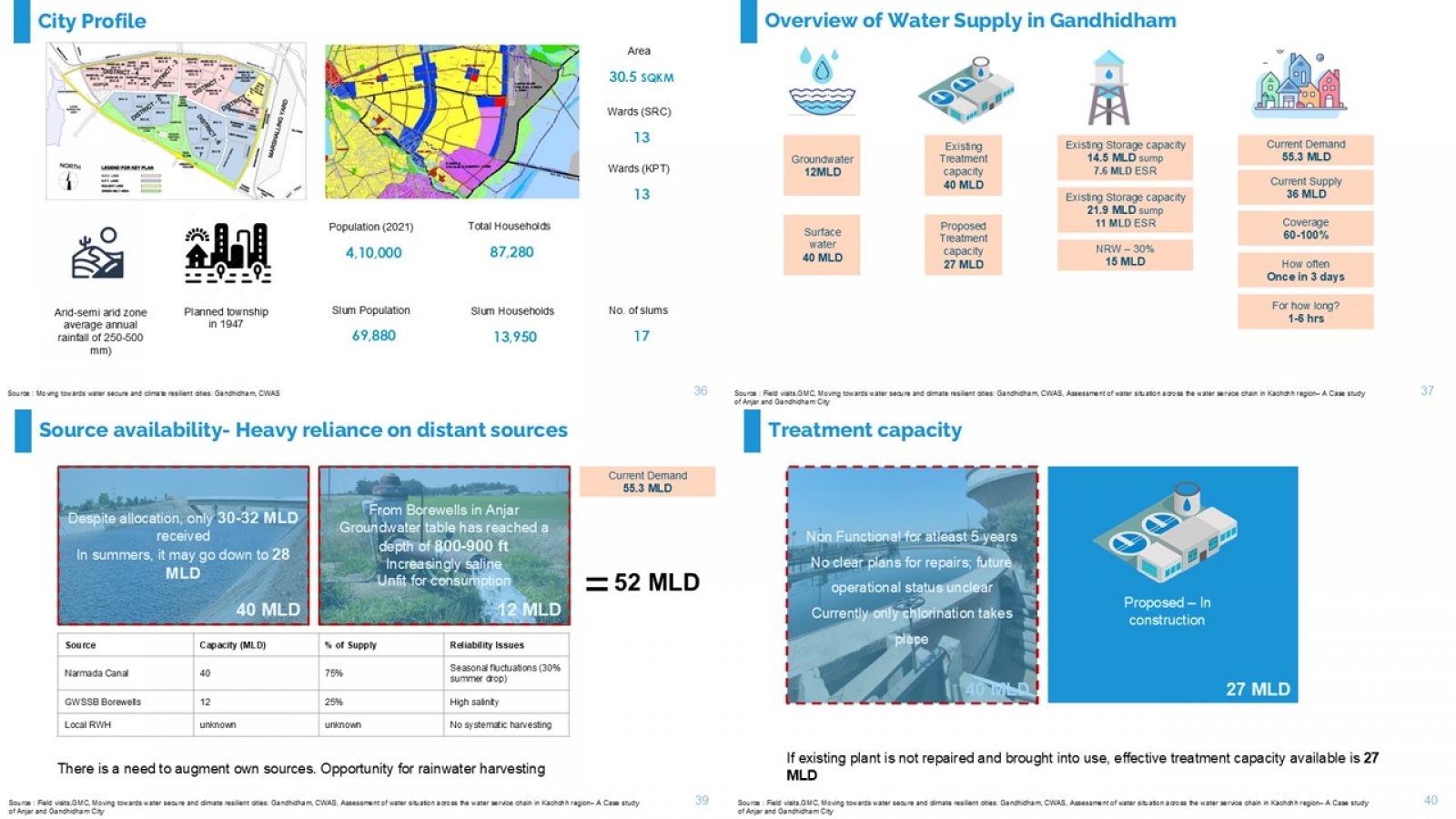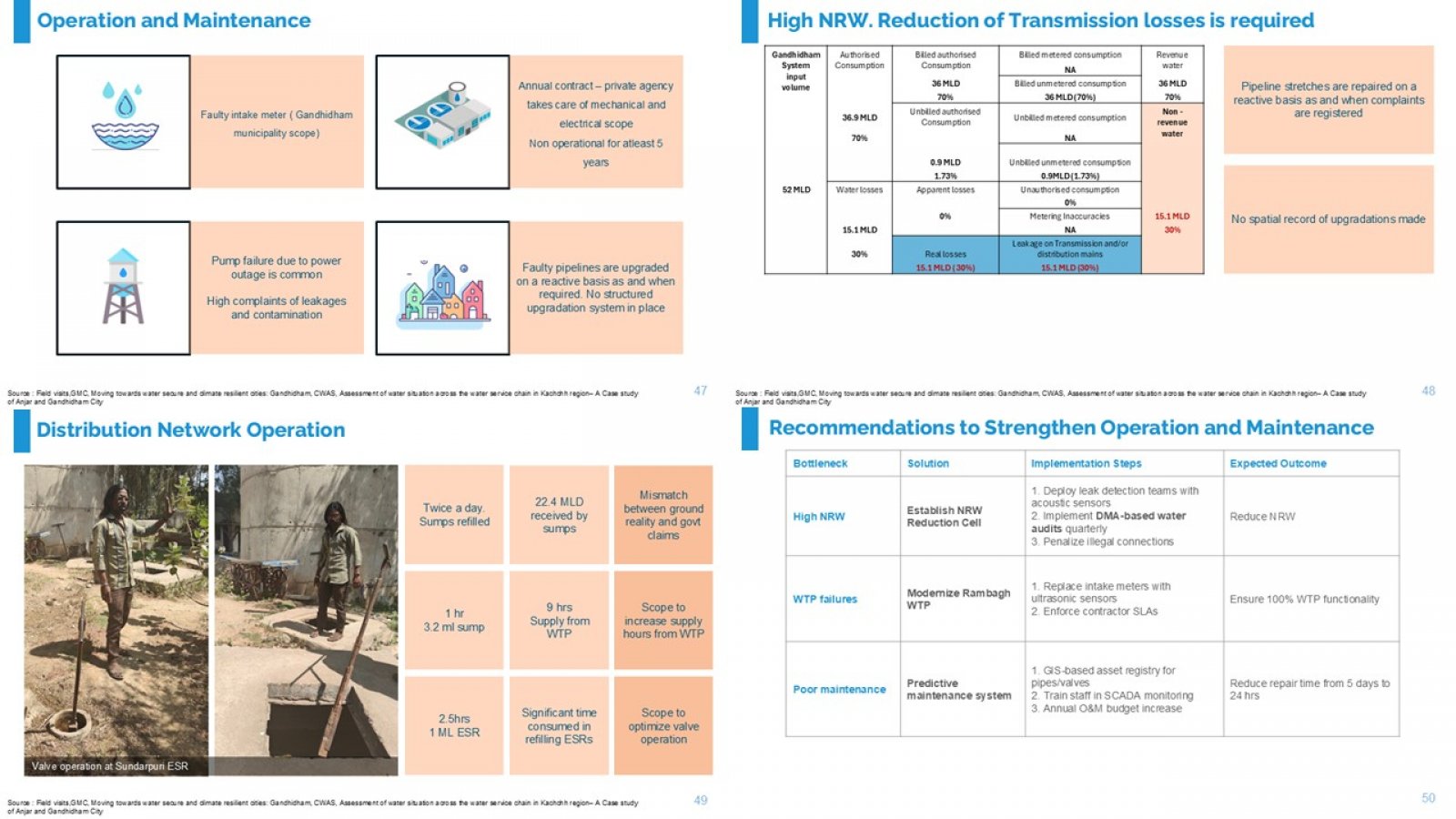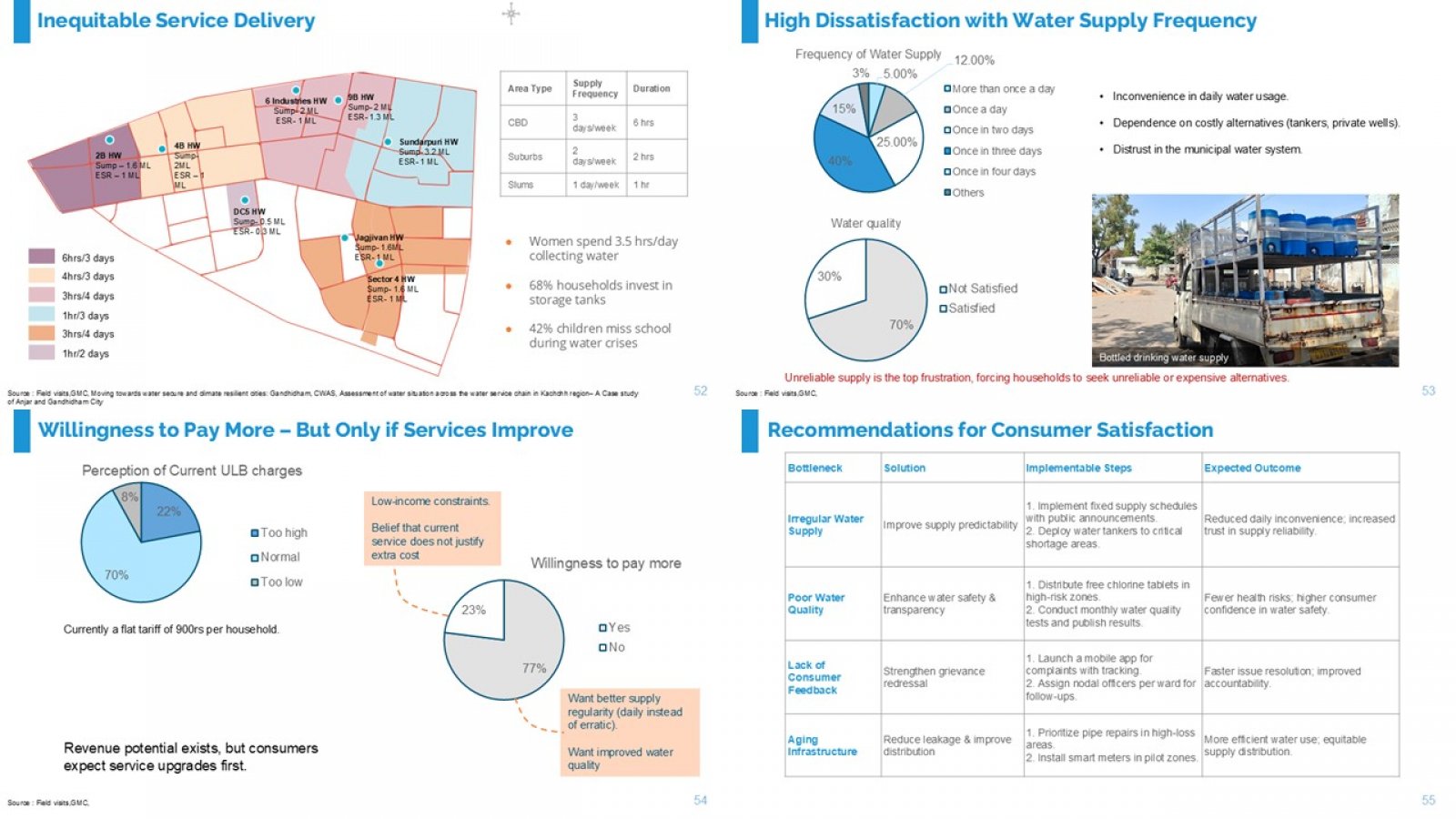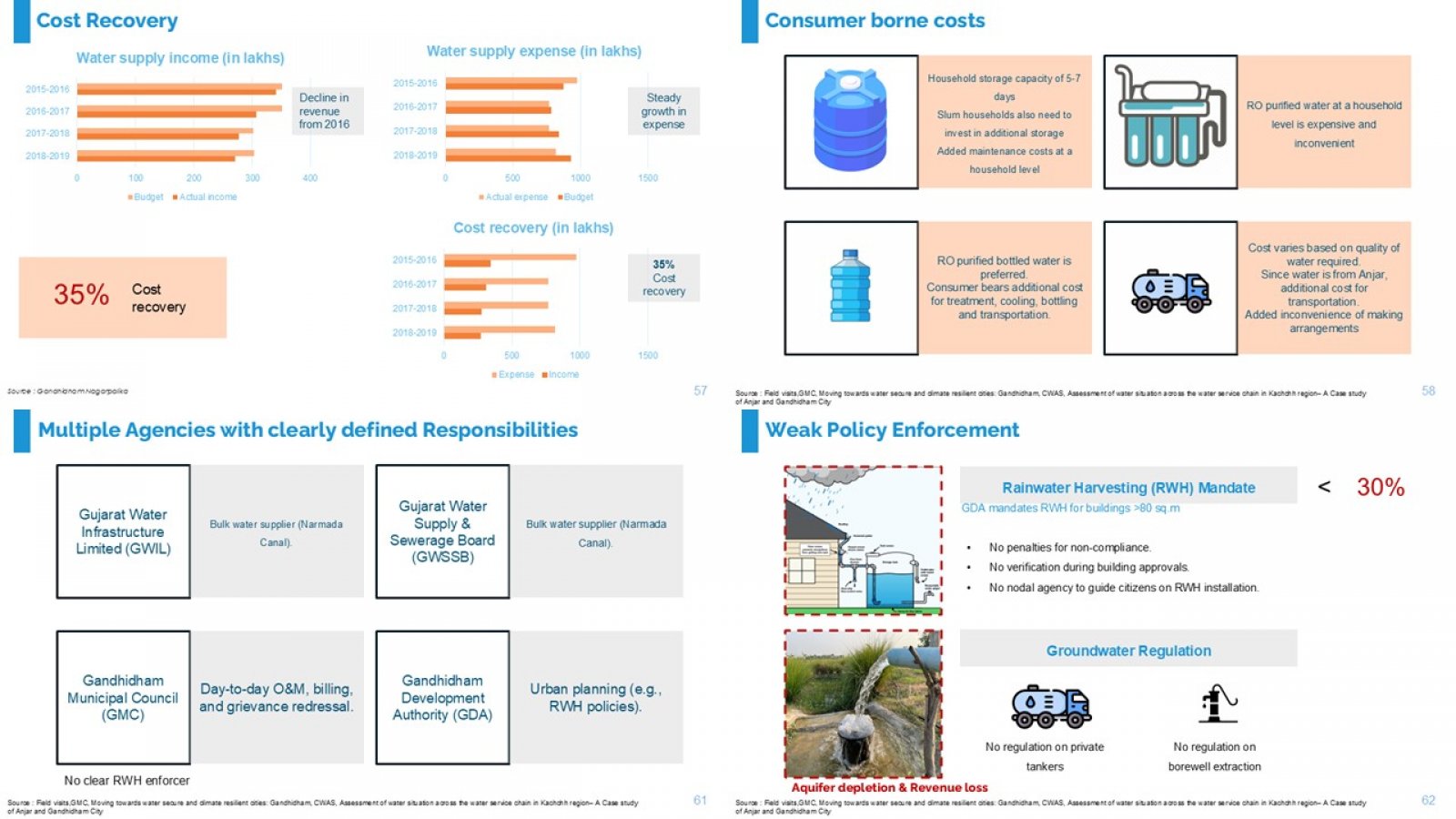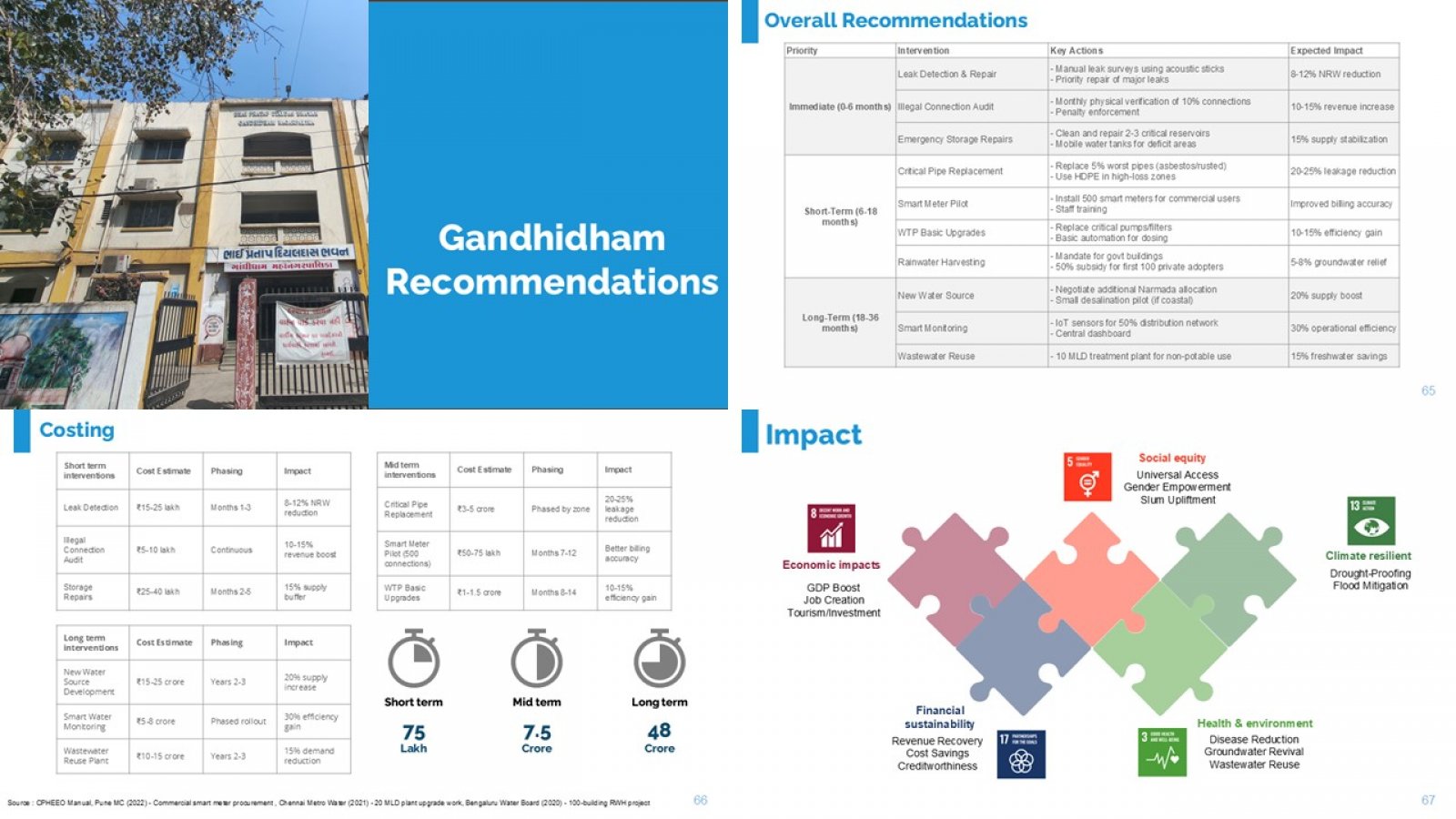Your browser is out-of-date!
For a richer surfing experience on our website, please update your browser. Update my browser now!
For a richer surfing experience on our website, please update your browser. Update my browser now!
In rapidly urbanizing cities of the Global South, intermittent water supply systems perpetuate inequity, inefficiency, and public health risks. Gandhidham, a water-scarce city in Gujarat, exemplifies these challenges due to its arid climate, groundwater dependence, and aging infrastructure. This study investigates the relationship between Gandhidham’s existing water supply infrastructure and its ability to transition to a daily supply system, assessing it with respect to identified study parameters: technical, financial, and governance barriers. The study identifies critical gaps in design and analysis, operation and maintenance, consumer satisfaction, cost recovery and financial health, and institutional structure.
